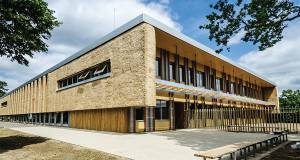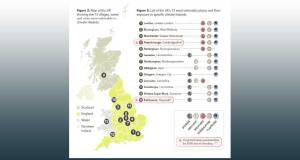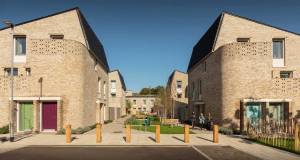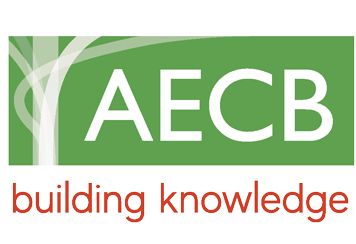- Projects
- Posted
Rebuilt Low Energy Buildings Database to become key international resource
This article was originally published in issue 40 of Passive House Plus magazine. Want immediate access to all back issues and exclusive extra content? Click here to subscribe for as little as €10, or click here to receive the next issue free of charge
Once built the new site – which is being developed in partnership with Passive House Plus and user experience (UX) strategists Everything is User Experience – will enable users to compare detailed information on hundreds of buildings, including various building typologies, build methods, energy performance standards, and – crucially – comparisons of calculated and actual performance data. The project team is working collaboratively with a range of key industry organisations and other stakeholders in the UK and internationally on the rebuild, with the aim of creating a key resource for anyone with an interest in low energy building or retrofit.
The AECB has been awarded a £30,000 grant for the rebuild by the MCS Charitable Foundation, with additional funding secured via two founding sponsors: Gemini Data Loggers, who manufacture the Tinytag range of dataloggers, and Ecology Building Society, who offer mortgages and loans in the UK on low energy new build and retrofit projects.
The AECB developed the LEBD as an education dissemination tool for Innovate UK in the Retrofit for the Future competition in 2010. In its current form, the LEBD showcases 455 innovative low energy UK building projects including single dwellings, multi-unit private and social housing schemes, schools and offices. It includes 150 replicable best practice retrofit projects, including projects meeting the passive house, Enerphit and AECB building standards, among others.
The LEBD will also continue to serve as a repository of evidence for projects seeking to attain the unique self-certification AECB Building Standard. The AECB requires that all self-certification projects are uploaded on the LEBD as evidence for public and professional scrutiny.
The upgraded database will include building performance evaluation – with an approach that encourages users who upload buildings to include data on how low energy build and retrofit projects have actually performed, based on monitoring results.
Led by the expertise of UX strategists Dan Hyde and Alex Blondin of Everything is User Experience and AECB technical reviewer Ian Wild of Lumina, the new design will place the user’s needs front and centre, to ensure the renewed LEBD is as accessible and intuitive as possible for construction industry, technical and consumer audiences alike. The site will capture and present design, performance and construction information related to the entire process of designing and building new buildings and retrofitting existing ones.
AECB chief executive Andy Simmonds said: “The MCS Charitable Foundation funding and support from Tinytag and the Ecology Building Society will allow AECB to create a collaborative, international platform for organisations in the UK, Ireland, Europe, North America, Canada and New Zealand to promote better designed and built, high performance, zero carbon buildings. The upgraded LEBD database will facilitate standardised, efficient data entry, improved sharing and access, consistent project comparison and reporting, enhanced feedback and learning as well as project promotion.”
Simmonds placed particular emphasis on the LEBD’s use in sharing experience on how to tackle existing buildings. “Retrofitting existing housing is an urgent priority. Housing accounts for around 40 per cent of the UK’s carbon emissions,” he said. “Four out of five homes occupied by 2050 have already been built. These households face the greatest challenges in decarbonising and adapting to the changing climate and rising energy costs.”
Related items
-
Air tightness training course to launch in Carlow this March
-
 #BuildingLife Series: Director at CORA Consulting Engineers, John Casey
#BuildingLife Series: Director at CORA Consulting Engineers, John Casey -
 September’s AECB environmental construction conference seeks to spark debate among industry experts
September’s AECB environmental construction conference seeks to spark debate among industry experts -
 Material matters - A palette for a vulnerable planet
Material matters - A palette for a vulnerable planet -
 Climate report warns overheating crisis threatens UK
Climate report warns overheating crisis threatens UK -
 Sustainable building leaders crowned at Exemplar Awards
Sustainable building leaders crowned at Exemplar Awards


